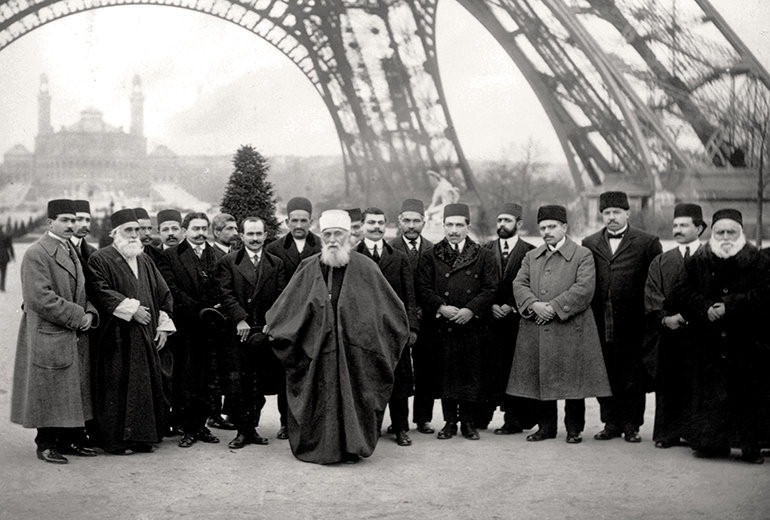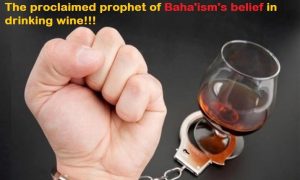The religion makers of the Baha’ism cult have announced each kind of intoxicant as strictly illegitimate in their forged commandments; as Abdul Baha has declared: “according to the Aqdas book text, it is forbidden to drink wine because it causes chronic diseases, neurasthenia and dementia.[1] “
However, it is interesting to be noted that while drinking alcohol has been announced as strictly illegitimate by the Baha’i leaders, the self-proclaimed prophet of Baha’ism has been accustomed to drinking intoxicants surprisingly. Abdul Hussein Ayati (one of the former Baha’is) has confessed: “Based on Hussein Ali Baha’s attachment and trust to me, I had his house key… when I came in the morning, the key was in my pocket. I opened the door immediately. There was an odor of infection in the room which doesn’t allow me to enter. I saw Hussein Ali drunk by drinking too much alcohol. Nobody was able to make him conscious…[۲]”
Anyway, could such a drunk wine-drinker guide and reform a world?! As a matter of fact, is there any justification for drinking wine while it was announced as illegitimate by Baha?!
Abdul Hussein Ayati relates a memoir concerning his residing in Paris narrated by one of Abdul Baha’s companion on his trip to Europe: “In Paris; the other night, we were drinking wine with Abbas Effendi. He revealed his secrets. I figured out that he was irreligious.[3]”
۱- How is it possible for the self-proclaimed prophet of Baha’ism to issue a verdict for intoxicant illegitimacy:
“لا تقربوا بها لّأنَّها حُرِّمَت عَلیکُم مِن لَدَی اللهِ العَلیِّ العَظیم”
“Don’t approach it because it has been announced as illegitimate by the Almighty God[4].”
However, the successor and interpreter of his forged verses has committed it!!!

۲- While even the successor of the self-proclaimed prophet of Baha’ism has confessed that the basis of this creed is forged, why other followers of the cult have remained loyal of it?!!!
[۱] Abdul Hamid Ishraq Khawari, the treasury of limitations and commandments, the electronic copy, p. 429.
[۲] Abdul Hussein Ayati, Kashful Hiyal (3 volumes), Tehran: Bina, 1340 S.H., Vol. 2, p. 168.
[۳] Abdul Hussein Ayati, (3 volumes), Tehran: Bina, 1340 S.H., Vol. 3, p. 140.
[۴] Abdul Hamid Ishraq Khawari, the treasury of limitations and commandments, the electronic copy, p. 429.






